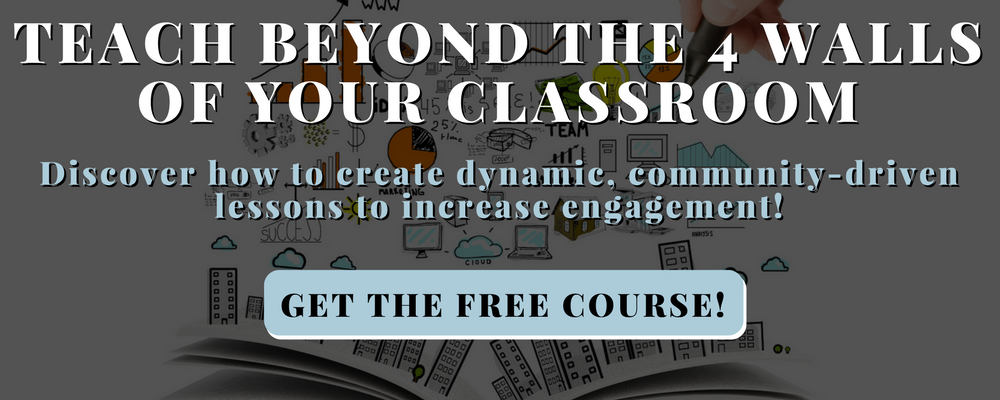TL;DR:
- It is crucial for instructional leaders to put the focus on student understanding.
- Ignite student understanding by developing common formative assessments, analyzing current levels of achievement, setting achievement goals, and sharing strategies.
- Igniting student understanding will happen when teacher teams create lessons to address the needs of learners.
Instructional leaders focus on student understanding. Schmoker (2005) wrote, “It starts with a group of teachers who meet regularly as a team to identify essential learning, develop common formative assessments, analyze current levels of achievement, set achievement goals, share strategies, and then create lessons to improve upon those levels.” What are the existing barriers to student understanding in your school district?
Transformational Six
A Group of Teachers Who Meet Regularly as a Team to Identify Essential Learning
High-performing teams develop and agree to provide all students with essential learning outcomes. Swan (2010) wrote, “Learning outcomes refer to the skills, knowledge, and attributes students should have upon completion of a particular course or program of study.” In the absence of learning outcomes, students receive a disjointed curriculum experience. Why do some teams skip this step if it is such an important part of teaching and learning?
Instructional leaders can ignite student understanding by designing a plan. The following plan supports deeper student understanding:
- Begin With The End In Mind
- Unpack The Standards
- Identify Transfer Goals
- Design Formative Assessments
- Implement The Curriculum
“All learners benefit from and should receive instruction that reflects clarity about purposes and priorities of content” (Tomlinson & McTighe, 2006, p. 6).
Instructional leaders must strive to identify the main focus for each grade level or course and then work collaboratively to ensure that each student is challenged and provided with scaffolding as needed. Click To Tweet
Ignite Student Understanding: Develop Common Formative Assessments
If student understanding is the goal, then educators must define what students will achieve and monitor the results of instruction and learning. Common formative assessments seem like a common sense approach in education, but many school districts still allow each professional educator to determine achievement based on assessments created by individuals rather than common formative assessments developed by professional learning teams.
“Formative assessment, done well, represents one of the most powerful instructional tools available to a teacher or a school for promoting student achievement. Teachers and schools can use formative assessment to identify student understanding, clarify what comes next in their learning, trigger and become part of an effective system of intervention for struggling students, inform and improve the instructional practice of individual teachers or teams, help students track their own progress toward attainment of standards, motivate students by building confidence in themselves as learners, fuel continuous improvement process across faculties, and, thus, drive a school’s transformation” (Stiggins & DuFour, 2009, p. 640).
Ignite Student Understanding: Analyze Current Levels of Achievement
Mark Sanborn (2015) wrote, “In the past, leaders were those who knew the right answers. Today, leaders are those who know the right questions.” What questions are guiding the work on your professional learning team?
Questions That Analyze Student Understanding
- What should every student know and be able to do as a result of this course/grade level?
- How will we assess student understanding?
- What data are we analyzing? How often?
- Is personalized learning part of our planning or does every student receive the same assignment?
- See Four Questions Asked in a High-Performing PLC (Solution Tree, 2015)
Before you begin your next team meeting, take a moment to determine which questions you will answer as a learning team. Continuous improvement does not occur when teachers meet on a weekly basis or merely discuss what was taught. Pursuing answers to questions will drive continuous improvement.
Ignite Student Understanding: Set Achievement Goals
A precursor to improvement is a clear understanding of the goal. Educators often enter a new nine weeks and don’t pause to reflect on the current reality (i.e. Where are we? Where are we going? How will we get there?). If the eighth-grade science teachers each develop their own goals and learning outcomes, is it likely that students will end up at the same place when they enter ninth-grade science? A school without clearly defined goals is like a ship without a rudder; it lacks direction and a slight wind could easily blow it off course (Wiles, 2009).
Teams set goals, companies strive to meet sales or production goals, and successful individuals monitor their diet, finances, time management, and other established goals. If school teams are aiming for student understanding, then they must become crystal clear on how to help each member of their school district meet the goal.
DuFour, DuFour, & Eaker (2008) wrote, “One of the most pressing questions a school must consider as it attempts to build the collaborative culture of a PLC is not, ‘Do we collaborate?’ but rather, ‘What do we collaborate about?’” (p. 28). A lack of clarity on intended results is a barrier to student growth and continuous improvement in schools.
Ignite Student Understanding: Share Strategies
Face-to-face meetings are an important method of communication. Teacher teams may have a limited number of days each year to collaborate with teachers from other schools. Tools such as Google Docs, LiveBinders, websites, shared Drive, Evernote, Voxer, Padlet, Google Hangout, blogs, and YouTube make it possible for educators to communicate and share strategies in real time.
Students benefit from adults sharing instructional strategies, lessons learned, and recommendations for supporting student understanding. These tools should not replace face-to-face meetings, but they offer options for teams that may not share a common planning period or teams that work in different schools.
Roland Barth (2006) highlighted the importance of professional learning teams in K-12 education when he wrote, “A precondition for doing anything to strengthen our practice and improve a school is the existence of a collegial culture in which professionals talk about practice, share their craft knowledge, and observe and root for the success of one another. Do the teachers in your school district share craft knowledge and root for the success of their co-workers?
Ignite Student Understanding: Create Lessons to Improve Upon Those Levels
Too many school leaders are ‘hoping’ that the standards will be implemented in classrooms. Teacher teams must be provided with time to analyze the standards, develop curriculum, experiment with instructional strategies, assess students, analyze the assessment results, and plan for future instruction. Be aware of teacher teams and administrators who claim, “This is how we have always done it.” Igniting student understanding will happen when teacher teams create lessons to address the needs of learners.
[scroll down to keep reading]
Conclusion
Instructional leaders provide a system that supports teaching and learning. In the absence of a system, students will enter class each day, participate in lessons, and at the end of the year, each student will be promoted to the next grade level. Instructional leaders must strive to identify the main focus for each grade level or course and then work collaboratively to ensure that each student is challenged and provided with scaffolding as needed.
Note: The Transformational Six were originally written by Mike Schmoker (2005), as outlined in the opening paragraph. The author of this article expanded on Schmoker’s six recommendations for schools and teacher teams.
About Steven Weber
Dr. Steven Weber is the Associate Superintendent for Teaching and Learning with Fayetteville Public Schools (AR). His areas of research include curriculum design, formative assessment, professional learning, and school leadership.



